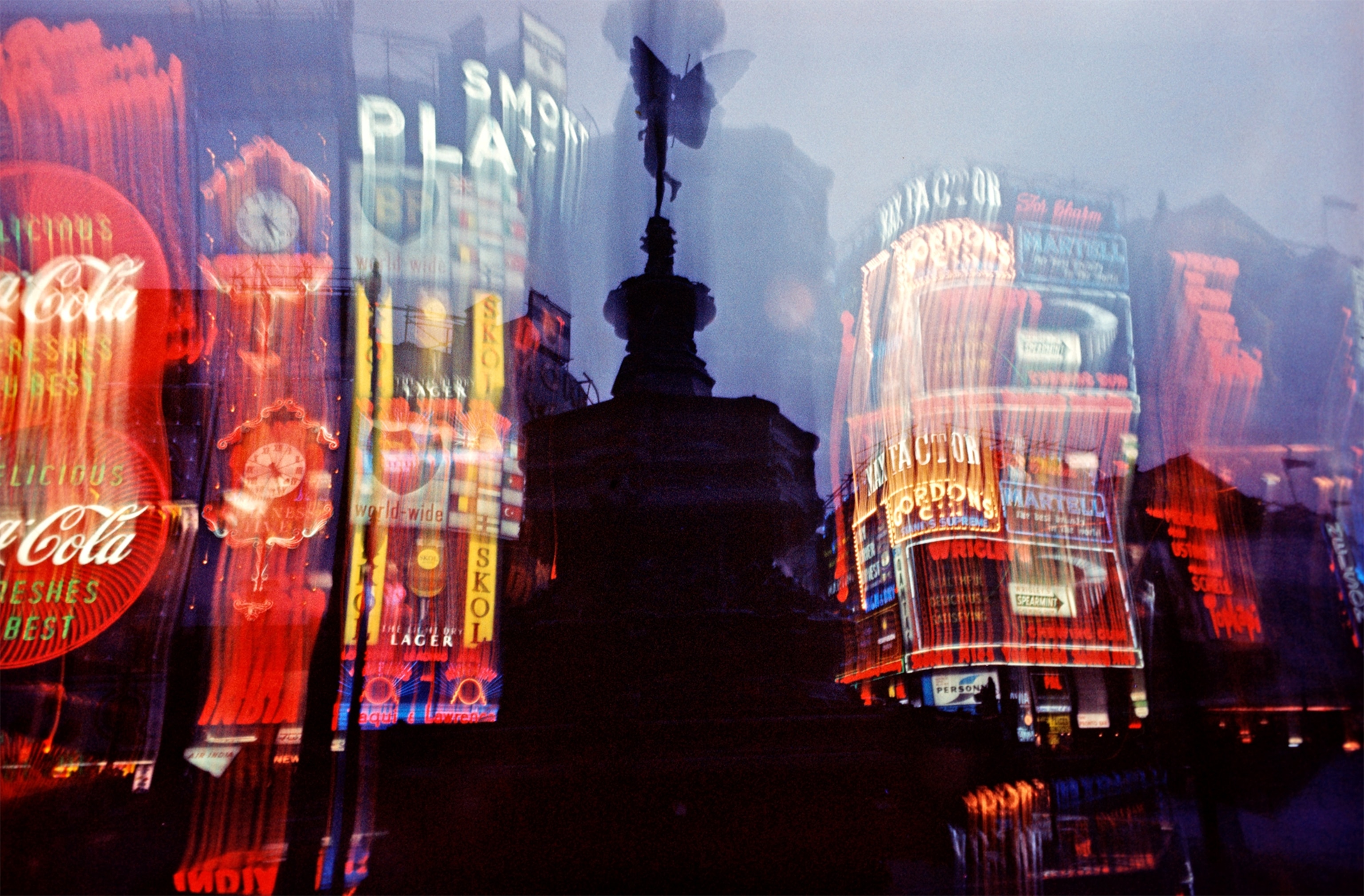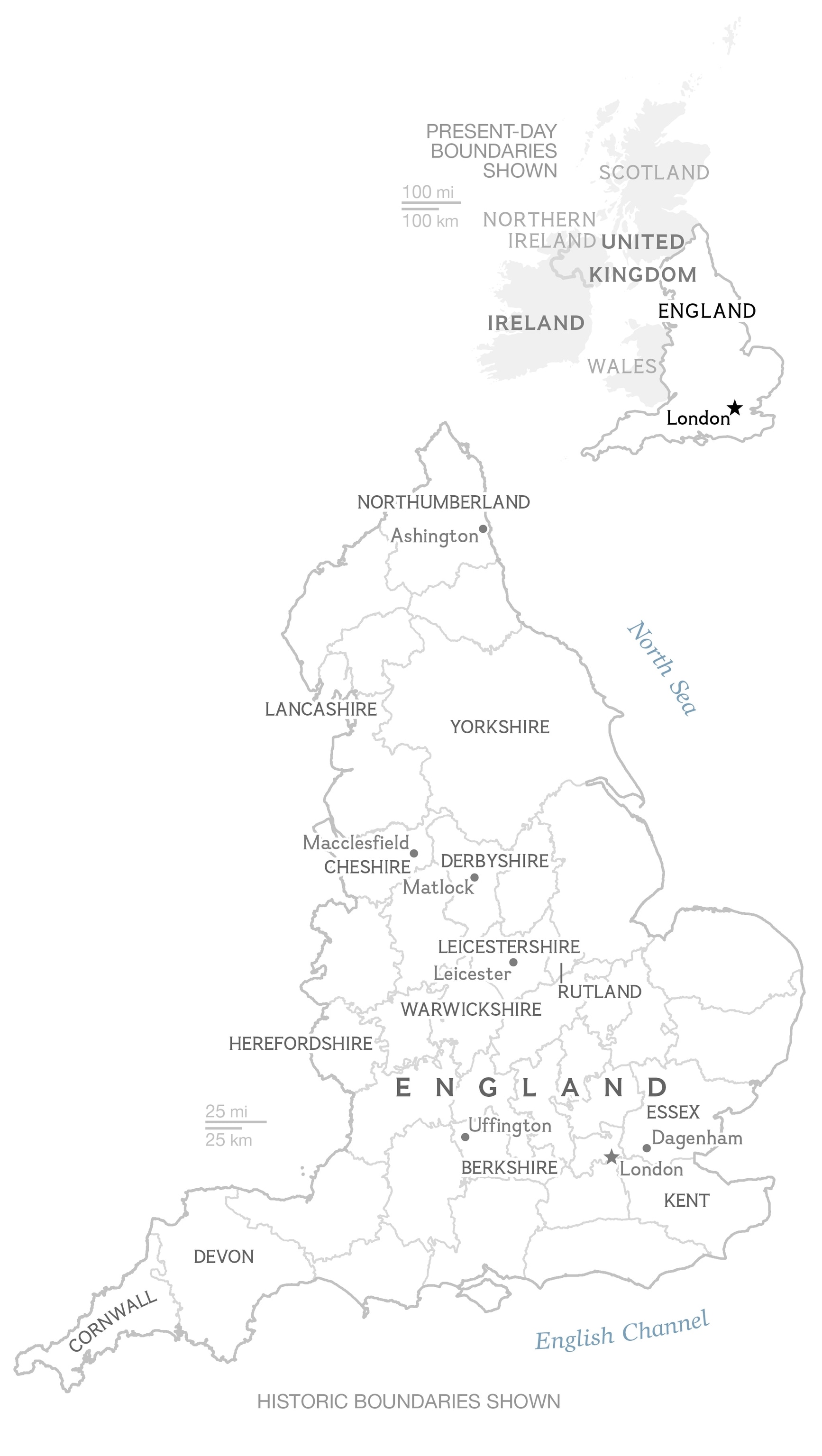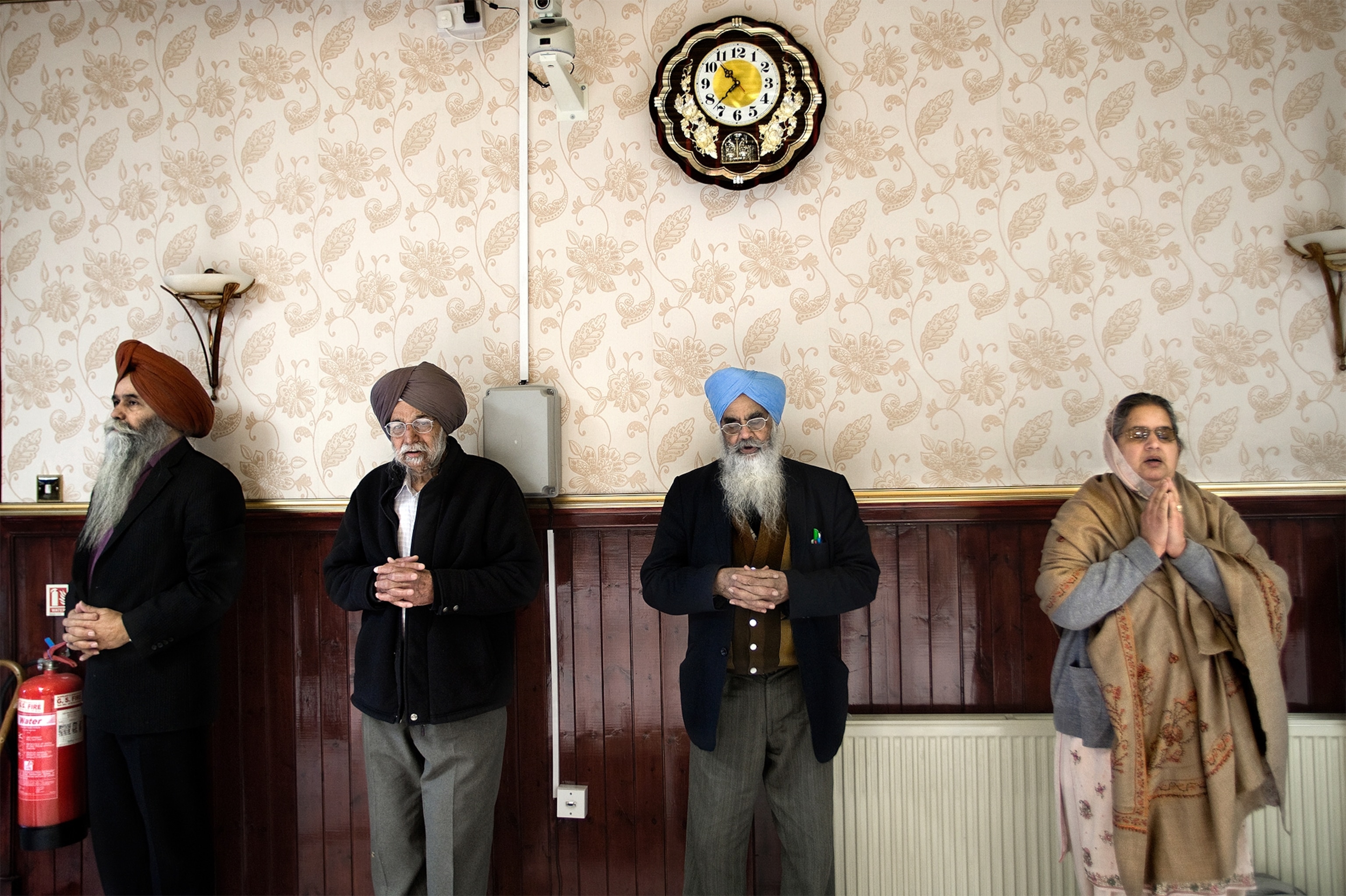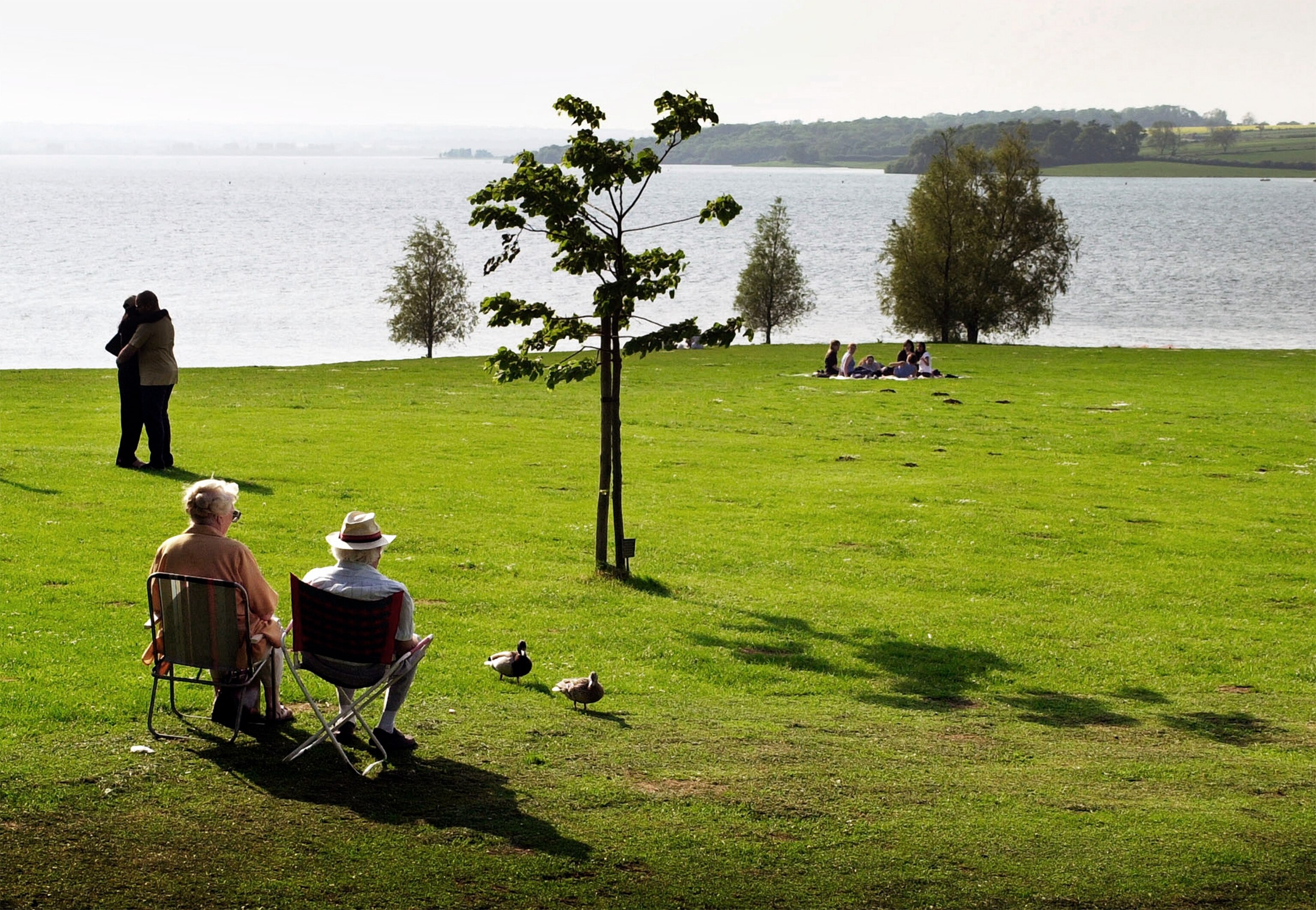
Britons Feeling Rootless After Changes to England's Historic Counties
Counties are important in giving the English "both a self-identity and a way of being known," author says.
When award-winning Financial Times columnist (and cricket guru) Matthew Engel told his friends and family he was going to visit each of England's 39 historic counties and write about them, they thought he'd taken leave of his senses. Three years later, he finished up the last county, fittingly the one where he lives, Herefordshire. Engel's England is the story of that journey, a quirky and deeply researched take on the unique geography and social history of England's counties—and the historical continuities that link them.
Speaking from his converted farmhouse in the county of Herefordshire, on the Welsh border, he introduces us to Essex Girl and Essex Man; explains why Lancashire people are funny but Yorkshire people aren't; and how immigration is reshaping England’s once traditional counties.
The book opens with you trying to explain to your son the complexities of national identity. Is he British or English? From the U.K. or G.B.? It's something that perplexes all foreigners. Enlighten us.
There's no country quite as complex as this one. If you're British, you didn't even know which letter to look under on the drop-down menu on the Internet. Are we U for United Kingdom? B for Britain? Or E for England? It's one of these things that the British don't even think about, any more than they think about the fact that this is the only country that doesn't have its name on its stamps.
But it's become incredibly topical as the United Kingdom came within a few percentage points of breakup. The Scottish thought about it. The English have done their utmost not to think about it. But what's suddenly become politically important since the Scots narrowly voted not to separate is the question of English nationalism. Up to now it's only been a negative—a way of not being Scottish or Welsh or Irish. Which is why I've always believed in the county as something smaller that you can feel attached to.
Like everything in Britain, the concept of a county is a very ancient one. So tell us a bit about the history.
The English counties have an extraordinarily long history. One county, Kent, we know dates back to Julius Caesar and may well be older than that. Essex is at least 1,500 years old. And all the other historic counties date back at least to medieval times.
I firmly believe that these counties are immensely important in giving people an identity—both a self-identity and a way of being known. You can say to anyone in England the names Devon or Lancashire or Yorkshire, and they will immediately have a picture of where you're talking about.

In that sense, it's like an American state. When you say Indiana or California, everyone knows what kind of state you are talking about, where it is roughly and its characteristics, even if they've never been to the place. What the counties don't have compared to the states is any kind of political power. Everything in this country is pretty much run from London.
Tell us a bit about your M.O. You didn't do all 39 counties at once, did you?
It wasn't a continuous journey. Life carried on. In all it took three years. It started off with me thinking I would do it alphabetically, which would be boring. Do I do it by region? That sounded even more boring. So I decided to just go as the mood took me. I wanted variety. So I mixed them all up. And I kept finding things I didn't expect. I liked to think I knew the country very well—I've been a reporter for 40 years, I've filed copy from practically every county at some time or another. My geography stands up reasonably well in pub quizzes.
But this is such a richly textured country. I don't think there's anywhere quite like it, where you can find these minute differences just going a few miles up the road, because the expression of history and tradition is so strong. I didn't find any two places that had exactly the same characteristics. I began to think of myself as a mother with 39 children, or 40, counting London. People sometimes ask me which is my favorite. And I say, No, no, I love them all! But I love them all differently!
Naturally, globalization and greater mobility have had their effect. A couple of generations ago, you had villages that had their own accents. Now that kind of thing has gone. Though I did discover one place, an old mining town in Northumberland called Ashington, which still has its own accent. These things are fading a bit, but they're still there. And they seem to me more and more important in a country where people often feel very alienated and need things to cling onto.

You write that it's "unexamined England" that interests you. Unpack that idea for us.
People tend to ignore what's in front of them. Our kids go off to Machu Picchu, but they've never been to Macclesfield or Matlock. There's so much here that people don't know about because it all seems so familiar. But just below the surface there are still huge differences: between north and south, rural and urban, the coastal areas and inland.
The biggest single thing that affects England today, and it took me almost the whole book to realize it, is the influence of London, because the London economy is so dominant. Indeed, the biggest single difference I found was between those counties that are wholly dominated by the influence of London and those counties where London still seems a long way away.
You call the Local Government Act of 1972, which abolished some counties and renamed others, "a crime against geography, a crime against history." Why was it such a bad idea?
For a start, there are some wonderful institutions in this country, like the Pevsner Architectural Guides, which any serious student of architecture relies on. They were divided into counties. So, overnight, one of the great works of modern scholarship became irrelevant because the counties changed. It was supposed to be a purely administrative change. But the post office refused initially to deliver letters if you used the old address. So you ended up with people not being sure where they were. And when you live in confused times, when the pattern of population is changing around you and the world is changing at incredible speed, you need things to hang onto. You need to know where you are.
Give us some examples of the name and boundary changes you so dislike.
Take Shakespeare's county, Warwickshire. The Warwickshire cricket team now plays in the West Midlands. But nobody cares about the West Midlands. It's just a bureaucratic concept. Another terrible one was Berkshire. Its symbol was the white horse, a chalk figure that dates back to pre-Roman times, at a place called Uffington. The white horse was probably a rallying flag for the ancient wars between Mercia and Wessex. Suddenly it wasn't even in Berkshire any more.
A more heartening example was Rutland, which was Britain's Rhode Island, except that it's a great deal smaller than Rhode Island. Rutland was always a bit of a national joke. It had a police force of 29 as they hardly had any crimes to investigate. It lost its independence under the act [when it was absorbed into Leicestershire], but it wouldn't go away. It's a very rural place, but there are a lot of influential people. And they fought to get their independence back. It took 23 years. But they got it back.
You're well known in Britain as a cricket writer and expert. Tell us why cricket is the quintessentially English game.
Cricket is the one major sport played by counties. The difference between Yorkshire and Lancashire, which in theory dates back to the War of the Roses between the Yorkist kings and the Lancastrian kings, is still expressed in terms of cricket. These are two of the biggest northern counties, and both were absolutely messed around by these changes, so neither county knows where it is. Yet you still have these very clear distinctions and traditions between the two. For instance, a large number of great British comedians derive from Lancashire. One of the things I enjoyed was asking why Lancashire people are funny and Yorkshire people aren't.
Few county names appear in popular slang, but one does, notoriously. Tell us about Essex Girl.
Essex is a county east of London, where the people from the East End, the most working-class area in London, which was heavily bombed in the war, were moved out to after the war to be re-housed. Industries were also sited there, like the huge Ford factory in Dagenham. Many of the factories in Essex have since disappeared, but the people are still there.
Essex Girl and Essex Man are two similar phenomena that have become important both politically and culturally over the last 20 years. Essex Man was seen as the epitome of the white working class, who under Margaret Thatcher were able to buy their own houses and became conservative voters.
Separately, there arose the phenomenon of Essex Girl, who was seen as Essex Man's mate. A newspaper described Essex Girl as someone with "big blonde hair with tasteful black roots, their layers of make-up, tottering along in micro-mini and white stilettos for a Malibu at the wine bar, en route to the night club." They also became synonymous with the phenomenon of teenage girls binge drinking, and promiscuity. There's even a new reality TV series called The Only Way Is Essex, which follows the new generation of Essex Men and Essex Girls. But Essex is also a really lovely county. It has more islands than any other county. Secret places and hidden depths.

We think of counties like Cornwall or Yorkshire as traditionally English. But of course Britain today is a nation of immigrants, and immigration has transformed many counties. Tell us about Leicestershire.
Up until the 1970s, Leicester, which is the county town, was an almost completely white city. Today it's on the verge of becoming majority non-white. This was a particular kind of immigration: Asians forced out of East Africa in the early 1970s by the dictator Idi Amin. The Asians were the traders in East Africa. So the white colonial masters didn't like them, and the Africans didn't like them, either. Under Amin, life became intolerable for them, and the British had to accept their post-imperial responsibilities to rescue these people. They were a particular type of immigrant. They were entrepreneurial, they spoke good English, they often had money salted away, and they had skills. So they became extremely successful, in many cases setting up major businesses.
In other parts of the country, like the cotton towns in Lancashire, where large numbers of Pakistanis were brought in from rural Pakistan, with no English and very few skills, you have a very depressed situation and, one feels, just beneath the surface, a very bad-tempered one. In Leicester there are residual tensions, but it's been much easier to reach an accommodation.
You yourself live at the edge of England, on the Welsh border, in the county of Herefordshire. Tell us about your corner of England.
In a way it represents what England used to be like. It's very rural, famous for its apples and cattle. It's a community that changes only slowly, where the pace of life is still fairly slow, and where it's very much un-London. There's still a sense of community and neighborhood. That doesn't mean everybody likes each other. The feuds here go on for hundreds of years. But it's a remnant of an England that hasn't quite gone yet.

The book ends with a plea for the return of the historic counties. You write, "This is not about local government, it's about our heritage and our future." Explain that thought.
I think in a country as confused as this one, in a time when it's changing so much, a sense of identity is extremely important. People need to know where they live and have a sense of who they are.
Americans are part of an enormous, sprawling country, but they have a strong sense of which state they're in. The idea that you could change the boundaries of states by a parliamentary act, that you could abolish Rhode Island or merge Tennessee with Kentucky, is absurd. And I think this is something that still upsets many people of my generation. Is it a major national crisis? No, of course not. It's a loss, an ache. [Laughs] I think we're a bit like a Labrador whose last puppy has just gone away. She doesn't know quite what it is that isn't there. But she knows something's not right. I feel England is a bit like that.
What was the single most important thing you learned about your country on your travels?
[Pause] I think I learned that I love it far more than I remotely imagined.
Simon Worrall curates Book Talk. Follow him on Twitter or at simonworrallauthor.com.